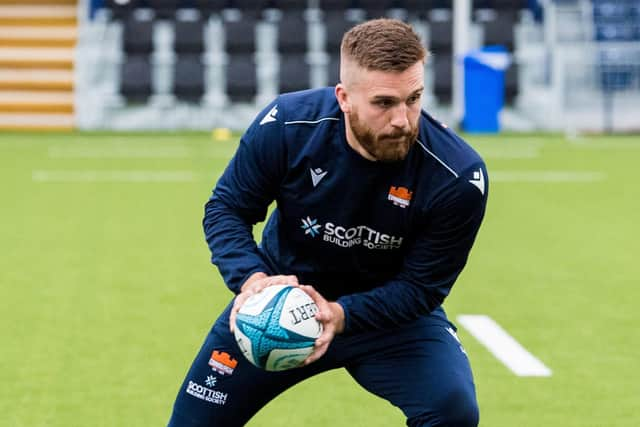This generation of rugby players is more aware of the dangers of head injuries, says Scotland forward
That’s the view of Scotland caps Luke Crosbie and Blair Kinghorn who were speaking as a new study involving former international players revealed the group were two and a half times more at risk of neurodegenerative disease.
The study, led by consultant neuropathologist Prof Willie Stewart, Honorary Professor at the University of Glasgow, compared health outcomes among 412 male, Scottish, former international rugby players and over 1,200 matched individuals from the general population.
Advertisement
Hide AdAdvertisement
Hide AdThe results showed that former players were at double the risk of a dementia diagnosis, and that there was an over 10-fold risk of motor neuron disease diagnosis.


They are troubling statistics and have led to calls for the adoption of measures to reduce unnecessary head impacts by cutting back on the number of games and ending full-contact training sessions.
Crosbie, the Edinburgh and Scotland flanker, believes today’s players are more switched on to the risks associated with repetitive head impacts.
“There is a higher level of awareness, definitely now as you can see the bigger picture as players,” said Crosbie.
“We want to win games, but we look out for each other. We say on the field that whatever we will be sticking together, looking after one another, defending or attacking and the most important thing is making sure everybody is safe.
“If you see somebody pick up a knock, or not acting right, or out of position you put your hand up and say they are not right. You spend so much time with the players you know what they are like.
“All the boys want to look after one another. There are times on the pitch, when people aren't right. If they miss their lineout rolls or look really fatigued you say, ‘he’s not right, get him off’. Everybody is looking after one another. Right from the academy system it has been consistent but even now we have actions that the players can implement to keep everybody safe.”
Kinghorn, a team-mate of Crosbie’s for club and country, said players need to be sensible and honest when it comes to head knocks.
Advertisement
Hide AdAdvertisement
Hide Ad“You have got to be smart,” said the stand-off. “All the camera angles will show if you are not steady on your feet. Ultimately it comes down to the player. You have to be really honest. There is a big onus on the players now. You have to sit out, as they say. People realise you only have one brain so there is no point trying to tough something out.”
Kinghorn added: “We are looked after really well here. All the protocols are in place to ensure player safety. I personally don’t have a worry. It is not something that is spoken about that much.”
Prof Stewart, who previously led the landmark FIELD study which reported the first data on neurodegenerative risk among former professional footballers, said: “Of particular concern are the data on motor neuron disease risk among our rugby players, which is even higher than that for former professional footballers. This finding requires immediate research attention to explore the specific association between rugby and the devastating condition of motor neuron disease.”
Comments
Want to join the conversation? Please or to comment on this article.

